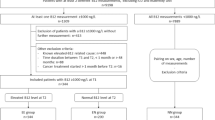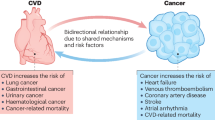Abstract
Promising experimental studies suggest that quercetin has potential anti-inflammatory effects. However, the results of current clinical trials on quercetin’s effects on the C-reactive protein (CRP), a sensitive inflammatory biomarker, are ambiguous. We conducted a meta-analysis of available randomized controlled trials (RCTs) to resolve this inconsistency and quantify the net effect of quercetin on circulating CRP concentrations. A systematic search was performed in several databases including SCOPUS, PubMed–Medline and Google Scholar until 16 June 2016. We used a random-effects model in combination with weight mean difference (WMD) and 95% confidence intervals (CI) for data analysis. Standard methods were used for the assessment of heterogeneity, meta-regression, sensitivity analysis and publication bias. The meta-analysis of seven RCTs (10 treatment arms) showed a significant reduction of circulating CRP levels (WMD: −0.33 mg/l; 95% CI: −0.50 to −0.15; P<0.001) following quercetin supplementation. In the subgroup analysis, a significant reducing effect was observed in trials with ⩾500 mg/day dosage (WMD: −0.34 mg/l; 95% CI: −0.52, −0.16; P⩽0.001) and in those with CRP <3 mg/l (WMD: −0.34 mg/l; 95% CI: −0.51, −0.18; P⩽0.001). In meta-regression, there was no association between changes in CRP concentrations, dose of supplementation and CRP baseline values. Our findings showed a significant effect of quercetin supplementation on the C-reactive protein—especially at doses above 500 mg/day and in patients with CRP <3 mg/l.
This is a preview of subscription content, access via your institution
Access options
Subscribe to this journal
Receive 12 print issues and online access
$259.00 per year
only $21.58 per issue
Buy this article
- Purchase on Springer Link
- Instant access to full article PDF
Prices may be subject to local taxes which are calculated during checkout




Similar content being viewed by others
References
Knekt P, Jarvinen R, Reunanen A, Maatela J . Flavonoid intake and coronary mortality in Finland: a cohort study. BMJ 1996; 312: 478–481.
Ferreyra MLF, Rius SP, Casati P . Flavonoids: biosynthesis, biological functions, and biotechnological applications. Front Plant Sci 2012; 3: 222.
Erlund I . Review of the flavonoids quercetin, hesperetin, and naringenin. Dietary sources, bioactivities, bioavailability, and epidemiology. Nutr Res 2004; 24: 851–874.
D'Andrea G . Quercetin: a flavonol with multifaceted therapeutic applications? Fitoterapia 2015; 106: 256–271.
Guillermo Gormaz J, Quintremil S, Rodrigo R . Cardiovascular disease: a target for the pharmacological effects of quercetin. Curr Top Med Chem 2015; 15: 1735–1742.
Kleemann R, Verschuren L, Morrison M, Zadelaar S, van Erk MJ, Wielinga PY et al. Anti-inflammatory, anti-proliferative and anti-atherosclerotic effects of quercetin in human in vitro and in vivo models. Atherosclerosis 2011; 218: 44–52.
Lakhanpal P, Rai DK . Quercetin: a versatile flavonoid. Internet J Med Update 2007; 2: 22–37.
Sanchez M, Lodi F, Vera R, Villar IC, Cogolludo A, Jimenez R et al. Quercetin and isorhamnetin prevent endothelial dysfunction, superoxide production, and overexpression of p47phox induced by angiotensin II in rat aorta. J Nutr 2007; 137: 910–915.
Hubbard G, Stevens J, Cicmil M, Sage T, Jordan P, Williams C et al. Quercetin inhibits collagen‐stimulated platelet activation through inhibition of multiple components of the glycoprotein VI signaling pathway. J Thromb Haemost 2003; 1: 1079–1088.
Alam MM, Meerza D, Naseem I . Protective effect of quercetin on hyperglycemia, oxidative stress and DNA damage in alloxan induced type 2 diabetic mice. Life Sci 2014; 109: 8–14.
Nabavi SF, Russo GL, Daglia M, Nabavi SM . Role of quercetin as an alternative for obesity treatment: you are what you eat!. Food Chem 2015; 179: 305–310.
Men K, Duan X, Wei X, Ling Gou M, Juan Huang M, Juan Chen L et al. Nanoparticle-delivered quercetin for cancer therapy. Anti-Cancer Agents Med Chem 2014; 14: 826–832.
Bischoff SC . Quercetin: potentials in the prevention and therapy of disease. Curr Opin Clin Nutr Metab Care 2008; 11: 733–740.
Collaboration ERF. C-reactive protein, fibrinogen, and cardiovascular disease prediction. N Engl J Med 2012; 2012: 1310–1320.
Venugopal SK, Devaraj S, Jialal I . Effect of C-reactive protein on vascular cells: evidence for a proinflammatory, proatherogenic role. Curr Opin Nephrol Hypertens 2005; 14: 33–37.
Pasceri V, Willerson JT, Yeh ET . Direct proinflammatory effect of C-reactive protein on human endothelial cells. Circulation 2000; 102: 2165–2168.
Das N, Sikder K, Bhattacharjee S, Majumdar SB, Ghosh S, Majumdar S et al. Quercetin alleviates inflammation after short-term treatment in high-fat-fed mice. Food Funct 2013; 4: 889–898.
González-Segovia R, Quintanar JL, Salinas E, Ceballos-Salazar R, Aviles-Jiménez F, Torres-López J . Effect of the flavonoid quercetin on inflammation and lipid peroxidation induced by Helicobacter pylori in gastric mucosa of guinea pig. J Gastroenterol 2008; 43: 441–447.
Askari G, Ghiasvand R, Feizi A, Ghanadian SM, Karimian J . The effect of quercetin supplementation on selected markers of inflammation and oxidative stress. J Res Med Sci 2012; 17: 637–641.
Egert S, Boesch-Saadatmandi C, Wolffram S, Rimbach G, Müller MJ . Serum lipid and blood pressure responses to quercetin vary in overweight patients by apolipoprotein E genotype. J Nutr 2010; 140: 278–284.
Egert S, Bosy-Westphal A, Seiberl J, Kürbitz C, Settler U, Plachta-Danielzik S et al. Quercetin reduces systolic blood pressure and plasma oxidised low-density lipoprotein concentrations in overweight subjects with a high-cardiovascular disease risk phenotype: a double-blinded, placebo-controlled cross-over study. Br J Nutr 2009; 102: 1065–1074.
Javadi F, Eghtesadi S, Ahmadzadeh A, Aryaeian N, Zabihiyeganeh M, Foroushani AR et al. The effect of quercetin on plasma oxidative status, C-reactive protein and blood pressure in women with rheumatoid arthritis. Int J Prev Med 2014; 5: 293–301.
Zahedi M, Ghiasvand R, Feizi A, Asgari G, Darvish L . Does quercetin improve cardiovascular risk factors and inflammatory biomarkers in women with type 2 diabetes: a double-blind randomized controlled clinical trial. Int J Prev Med 2013; 4: 777–785.
Dower JI, Geleijnse JM, Gijsbers L, Schalkwijk C, Kromhout D, Hollman PC . Supplementation of the pure flavonoids epicatechin and quercetin affects some biomarkers of endothelial dysfunction and inflammation in (pre) hypertensive adults: a randomized double-blind, placebo-controlled, crossover trial. J Nutr 2015; 145: 1459–1463.
Moher D, Shamseer L, Clarke M, Ghersi D, Liberati A, Petticrew M et al. Preferred reporting items for systematic review and meta-analysis protocols (PRISMA-P) 2015 statement. Syst Rev 2015; 4: 1.
Jadad AR, Moore RA, Carroll D, Jenkinson C, Reynolds DJM, Gavaghan DJ et al. Assessing the quality of reports of randomized clinical trials: is blinding necessary? Controlled Clin Trials 1996; 17: 1–12.
Moher D, Cook D, Jadad A, Tugwell P, Moher M, Jones A et al. Assessing the quality of reports of randomised trials: implications for the conduct of meta-analyses. Health Technol Assess 1999; 3: 1–98. i.
Borenstein M, Hedges L, Higgins J, Rothstein H . Comprehensive Meta-Analysis Version 2. Biostat: Englewood, NJ, 2005, pp 104.
Brüll V, Burak C, Stoffel-Wagner B, Wolffram S, Nickenig G, Müller C et al. Effects of a quercetin-rich onion skin extract on 24 h ambulatory blood pressure and endothelial function in overweight-to-obese patients with (pre-)hypertension: a randomised double-blinded placebo-controlled cross-over trial. Br J Nutr 2015; 114: 1263–1277.
Pfeuffer M, Auinger A, Bley U, Kraus-Stojanowic I, Laue C, Winkler P et al. Effect of quercetin on traits of the metabolic syndrome, endothelial function and inflammation in men with different APOE isoforms. Nutr Metab Cardiovasc Dis 2013; 23: 403–409.
Erdman JW, Balentine D, Arab L, Beecher G, Dwyer JT, Folts J et al. Flavonoids and heart health: proceedings of the ILSI North America flavonoids workshop, May 31–June 1, 2005, Washington, DC. J Nutr 2007; 137: 718S–737S.
Bhaskar S, Kumar KS, Krishnan K, Antony H . Quercetin alleviates hypercholesterolemic diet induced inflammation during progression and regression of atherosclerosis in rabbits. Nutrition 2013; 29: 219–229.
García-Mediavilla V, Crespo I, Collado PS, Esteller A, Sánchez-Campos S, Tuñón MJ et al. The anti-inflammatory flavones quercetin and kaempferol cause inhibition of inducible nitric oxide synthase, cyclooxygenase-2 and reactive C-protein, and down-regulation of the nuclear factor kappaB pathway in Chang Liver cells. Eur J Pharmacol 2007; 557: 221–229.
Zahedi M, Ghiasvand R, Feizi A, Asgari G, Darvishi L . Does quercetin improve cardiovascular risk factors and inflammatory biomarkers in women with type 2 diabetes: a double-blind randomized controlled clinical trial. Int J Prev Med 2013; 4: 777–785.
Boots AW, Wilms LC, Swennen EL, Kleinjans JC, Bast A, Haenen GR . In vitro and ex vivo anti-inflammatory activity of quercetin in healthy volunteers. Nutrition 2008; 24: 703–710.
Rivera L, Morón R, Sánchez M, Zarzuelo A, Galisteo M . Quercetin ameliorates metabolic syndrome and improves the inflammatory status in obese Zucker rats. Obesity 2008; 16: 2081–2087.
Loke WM, Proudfoot JM, Stewart S, McKinley AJ, Needs PW, Kroon PA et al. Metabolic transformation has a profound effect on anti-inflammatory activity of flavonoids such as quercetin: lack of association between antioxidant and lipoxygenase inhibitory activity. Biochem Pharmacol 2008; 75: 1045–1053.
Kumazawa Y, Kawaguchi K, Takimoto H . Immunomodulating effects of flavonoids on acute and chronic inflammatory responses caused by tumor necrosis factor alpha. Curr Pharm Des 2006; 12: 4271–4279.
Harwood M, Danielewska-Nikiel B, Borzelleca J, Flamm G, Williams G, Lines T . A critical review of the data related to the safety of quercetin and lack of evidence of in vivo toxicity, including lack of genotoxic/carcinogenic properties. Food Chem Toxicol 2007; 45: 2179–2205.
Ambrose AM, Robbins DJ, Deeds F . Comparative toxicities of quercetin and quercitrin. J Am Pharmaceut Assoc 1952; 41: 119–122.
Saito D, Shirai A, Matsushima T, Sugimura T, Hirono I . Test of carcinogenicity of quercetin, a widely distributed mutagen in food. Teratog Carcinog Mutagen 1980; 1: 213–221.
Hirono I, Ueno I, Hosaka S, Takanashi H, Matsushima T, Sugimura T et al. Carcinogenicity examination of quercetin and rutin in ACI rats. Cancer Lett 1981; 13: 15–21.
Author information
Authors and Affiliations
Corresponding author
Ethics declarations
Competing interests
The authors declare no conflict of interest.
Additional information
Author contributions
MMS and ZM conceived the study. MMS carried out the literature search and wrote the manuscript. SSH and DF carried out data extraction and independent reviewing. MMS and ZM assessed the quality of included studies. MMS and MGH performed data analysis and interpretation. ZM revised the manuscript. The manuscript has been read and approved by all authors.
Rights and permissions
About this article
Cite this article
Mohammadi-Sartang, M., Mazloom, Z., Sherafatmanesh, S. et al. Effects of supplementation with quercetin on plasma C-reactive protein concentrations: a systematic review and meta-analysis of randomized controlled trials. Eur J Clin Nutr 71, 1033–1039 (2017). https://doi.org/10.1038/ejcn.2017.55
Received:
Revised:
Accepted:
Published:
Issue Date:
DOI: https://doi.org/10.1038/ejcn.2017.55
This article is cited by
-
Namul, the driving force behind health and high vegetable consumption in Korea
Journal of Ethnic Foods (2020)
-
The effect of gas versus charcoal open flames on the induction of polycyclic aromatic hydrocarbons in cooked meat: a systematic review and meta-analysis
Journal of Environmental Health Science and Engineering (2020)
-
Extraction, Purification, and Determination by HPLC of Quercetin in Some Italian Wines
Food Analytical Methods (2018)



